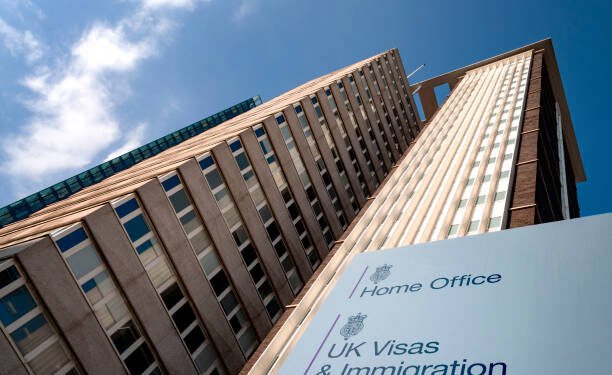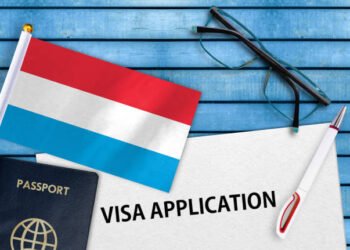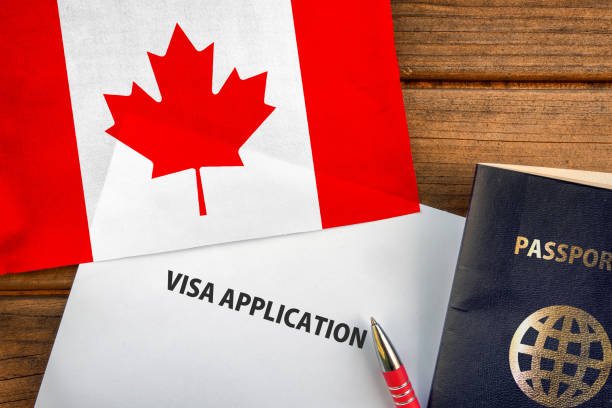Countless dreams of moving to the UK have been crushed, not because applicants were unqualified, but because small, preventable mistakes led to rejection. If you’ve faced a visa refusal or fear that your application might fall through the cracks, you’re not alone. But the good news? Rejections can be avoided. With the right knowledge, preparation, and expert-backed strategies, your next UK visa application can succeed, where many others have failed.
Understanding Why UK Visas Get Rejected
Common Reasons for Rejection Across Visa Categories
Visa applications to the United Kingdom have been rejected for a variety of reasons, many of which could have been avoided. These reasons have typically included incomplete documentation, discrepancies in submitted information, lack of financial evidence, and failure to meet eligibility criteria. Often, applicants have underestimated the importance of providing accurate and complete documentation, resulting in automatic refusal.
Trends and Statistics in UK Visa Refusal Rates
Recent immigration statistics have indicated that certain visa categories, particularly visitor and student visas, have experienced higher rejection rates. For example, B-visit visa rejection rates for certain countries have remained above 25%, mainly due to credibility doubts or incomplete applications. In contrast, visas sponsored by UK employers or universities have had higher approval rates when supporting documents have been validated and the process has been followed correctly.
Misconceptions About “Simple” Applications
A common belief among applicants has been that straightforward visas, like visitor or student visas which require less effort. However, such applications have been subject to detailed scrutiny by UK Visas and Immigration (UKVI). Even small inconsistencies or missing details have triggered suspicion. Therefore, even “simple” visa applications must have been approached with caution and precision.
Mistake #1: Insufficient or Unclear Financial Proof
Financial Documentation Requirements
All applicants have been required to demonstrate that they possess sufficient funds to support themselves during their stay in the UK. This financial threshold has depended on the visa category. For instance, student visa applicants must have shown enough money to cover tuition and living expenses for at least 9 months. Visitor visa applicants must have demonstrated the ability to fund their accommodation, transportation, and daily expenses.
Common Errors in Financial Evidence
Applicants have frequently submitted incomplete or unclear bank statements, which have led to confusion or suspicion. Currency conversions have been omitted, large unexplained deposits have not been clarified, or account holders have not matched the names in the application forms. These errors have resulted in the assumption that documents were forged or the funds were not genuinely available.
Best Practices for Financial Clarity
To prevent rejection, all financial documents should have been provided with clear labeling, valid dates, and translations where applicable. Funds must have been held for a consistent period (usually 28 days or more), and sources of income must have been verifiable. Currency should have been converted to GBP with a reliable source such as OANDA.
Mistake #2: Incomplete or Incorrect Documents
Importance of a Complete Documentation Bundle
UKVI has relied heavily on the documents submitted at the time of application. Missing a page in a bank statement, failing to provide a birth certificate, or submitting expired IDs have resulted in outright refusals. In many cases, appeals have not been entertained if the original application was incomplete.
Organizing and Verifying Supporting Documents
Applicants have been advised to prepare a checklist and cross-reference it with the guidance provided on GOV.UK. All pages of multi-page documents should have been submitted. Certified translations must have been provided for any non-English documents. Identity documents must have matched details across all forms.

Mistake #3: Weak Ties to the Home Country
Importance of Showing Intent to Return
For non-settlement visas, including visitor and student routes, applicants must have convinced UKVI that they intend to return home after their stay. Weak ties to the home country have often led to assumptions that the applicant might overstay or work illegally in the UK.
Documents That Strengthen Home Ties
Strong home ties have been demonstrated through job offer letters, business ownership proof, property documents, family responsibilities, and ongoing education. Showing such commitments has helped in presenting the applicant as a genuine temporary visitor.
Mistake #4: Lack of Genuine Intent or Credibility
Red Flags in Personal Statements and Interviews
Credibility interviews and statements of purpose have been used to assess the applicant’s intent. Vague or inconsistent responses have raised red flags. For student visas, questions regarding the course, university, and future plans have often been asked. If answers have appeared rehearsed or conflicting with application forms, refusals have been issued.
Creating a Credible Application Narrative
Applicants must have ensured that their educational or career path made sense. Studying a course unrelated to past qualifications or quitting a stable job without explanation have been perceived as questionable. A well-written personal statement with consistent documentation has strengthened credibility.
Mistake #5: Issues with the Sponsoring Institution or Employer
Choosing the Right Sponsor
Many visa applications have failed because the sponsoring organization—whether an employer or educational institution—was not recognized by the UK government. Sponsors must have held a valid license issued by the UK Home Office.
Risks of Fake or Unlicensed Sponsors
Fake universities, diploma mills, or unlicensed employers have often misled applicants. Using such sponsors has not only led to visa refusals but also to long-term bans from reapplying. Before proceeding, sponsor status should have been checked through the Home Office’s official list.
Mistake #6: Incorrect Visa Category Chosen
Applying Under the Wrong Route
Applicants have sometimes chosen incorrect visa types. For instance, applying for a tourist visa when the purpose has been business-related, or choosing a student visa without full-time enrollment, has resulted in rejection. Each visa type has been tied to strict eligibility conditions.
Aligning Intent with the Right Visa
Careful reading of visa descriptions and requirements on GOV.UK has been essential. If unsure, potential migrants have been encouraged to seek guidance from a qualified immigration adviser to ensure they apply under the correct category.
Mistake #7: Ignoring UK Immigration Rules and Deadlines
Importance of Timeliness and Accuracy
Late applications, incorrect form submissions, or failure to attend biometric appointments have automatically invalidated visa applications. Immigration rules have been frequently updated, and failure to follow them has led to unnecessary refusals.
Staying Updated With Legal Changes
It has been recommended to regularly visit GOV.UK and subscribe to immigration newsletters. Trusted legal sources and immigration consultants have helped ensure that updated procedures were followed.
15 Expert Tips to Avoid UK Visa Rejection
Tip 1: Triple-check all uploaded documents for clarity and completeness.
Scanned copies must be legible, properly labeled, and uploaded in the correct format.
Tip 2: Don’t rely on outdated information.
Use only official guidance from GOV.UK, not social media or hearsay.
Tip 3: Include a clear cover letter.
A letter explaining the application, travel purpose, and supporting documents has helped immigration officers make informed decisions.
Tip 4: Convert all foreign currency amounts to GBP.
This ensures financial documentation is easily understood by the caseworker.
Tip 5: Avoid large unexplained deposits.
Funds should have a documented source such as salary slips, tax returns, or business income.
Tip 6: Use certified translations for non-English documents.
Only professionally translated documents with certification statements have been accepted.
Tip 7: Ensure all details are consistent.
Discrepancies in name, address, or dates across documents have led to suspicion.
Tip 8: Fill out every section of the application.
Blank fields, unless optional, should have been avoided.
Tip 9: Prepare for a possible visa interview.
Confidence and honesty in explaining intentions have positively influenced decisions.
Tip 10: Reapply only after correcting previous mistakes.
Refusal history must have been acknowledged, and past errors corrected before submission.
Tip 11: Book TB tests and biometric appointments early.
Delays in these areas have led to missed deadlines.
Tip 12: Avoid using fraudulent agents.
Applications should have been submitted independently or through licensed immigration advisors.
Tip 13: Keep copies of all submitted documents.
For appeals or reapplications, referencing previous submissions has proven useful.
Tip 14: Apply early.
Visa decisions have taken weeks, and late applications have missed key deadlines like academic start dates.
Tip 15: Seek professional help if rejected previously.
Experienced consultants have helped identify weak points and prepared stronger applications.
What to Do If You’ve Been Rejected
Understanding the Refusal Letter
Refusal letters have included reasons for denial, which must have been read carefully. Generic responses have often hidden specific details, so applicants must have reviewed every line.
Options for Reapplication or Appeal
Depending on the visa type, administrative review, appeal, or reapplication has been permitted. In most non-settlement cases, fresh applications with corrected errors have been faster and more effective than appeals.
Legal Support and Remedies
If the visa refusal has involved complex issues or legal grounds, immigration solicitors have offered professional advice. Timelines for appeals or reviews must have been respected.

Conclusion
Visa rejections for the UK have been painful but avoidable. By understanding the most common pitfalls and applying expert-backed strategies, applicants have drastically improved their chances of success. Every application must have been treated seriously, with preparation, accuracy, and honesty as top priorities. With the right guidance and careful planning, approval has become not only possible, but highly likely for you.


















Hello young lady Sandra I Accepted your marriage sponsural proposal, if you will
forfill ur promise’s to SPONSORSHIP my Travel paid expenses with documents required for relocating me to yourself in Australia country for work, Living & marriage sponsural proposal comes up between us all,as I have found you very attractive to marry etc;!!
Hello young lady Sandra I Accepted your marriage sponsural proposal, if you will
forfill ur promise’s to SPONSORSHIP my Travel paid expenses with documents required for relocating me to yourself in Australia country for work, Living & marriage sponsural proposal comes up between us all,as I have found you very attractive to marry etc;!!
Hello young lady Sandra I Accepted your marriage sponsural proposal, if you will
forfill ur promise’s to SPONSORSHIP my Travel paid expenses with documents required for relocating me to yourself in Australia country for work, Living & marriage sponsural proposal comes up between us all,as I have found you very attractive to marry etc;!!